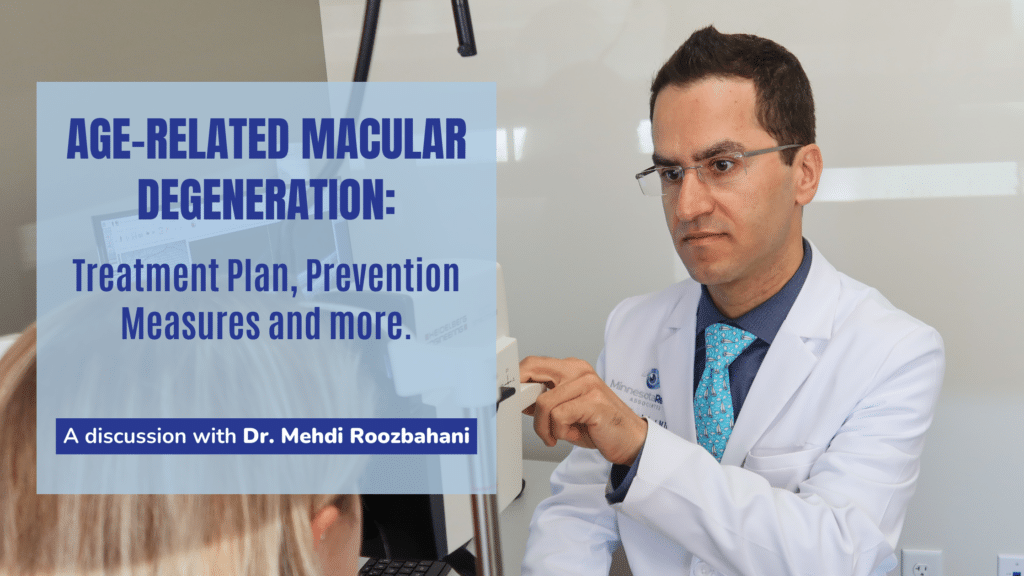Age-Related Macular Degeneration | A Discussion with Mehdi Roozbahani, M.D.

As we get older, our eyes are bound to undergo some changes. Most people may be familiar with these changes, but they may not be aware of the eye diseases that come with age. Age-Related Macular Degeneration (AMD) is one of the most common causes of vision loss for people who are 50 years or older. Our Retina Specialists at Minnesota Retina Associates want to make sure patients understand the causes, prevention, and accessible treatment plans for AMD thereby improving their chances of preserving their vision. Dr. Mehdi Roozbahani answered several questions about AMD.
What is Age-Related Macular Degeneration?
AMD progressively affects the macula, which serves as the central part of the retina responsible for sharp and detailed vision. Essentially, the macula helps us perceive colors accurately and see fine details, like reading and recognizing faces. There are two types of macular degeneration. Dry AMD is the most common form of AMD, making up about 80% of all AMD cases. Dry AMD occurs when the macula gets thinner with age, allowing tiny clumps of protein to grow on the macula. Wet AMD occurs when abnormal blood vessels grow under the retina, and bleed or leak resulting in a decrease in central vision or distortion in the vision.
What are the causes of AMD?
Although its exact cause has not been completely understood, there are several risk factors associated with AMD. Age is the most crucial risk factor connected to AMD. People with a family history of AMD also have a higher risk of the disease. Other risk factors include lifestyle habits like poor nutrition or diet, obesity, smoking, high blood pressure, extended exposure to UV light and more.
What are some preventive measures for AMD?
Even though risk factors like genetics and age cannot be altered, there are actions that can be taken to reduce the chances of developing Age-Related Macular Degeneration. Some of these lifestyle actions include having a nutrient-rich diet, protecting your eyes from harmful UV light, avoiding smoking, getting regular eye exams, and maintaining a healthy lifestyle. Specific vitamins and minerals (AREDS 2 formulation supplements) can help slow the progression of the disease in some stages.
What are the treatment options for AMD?
Treatment for AMD depends on the stage and type. For early and intermediate stages of dry AMD, there’s currently no treatment. FDA recently approved an injection for late stage of dry AMD. Standard treatment for wet AMD includes an injection of medication called anti-VEGF in the eye to stop or slow down visual loss.
In conclusion, detecting and treating AMD early is crucial in slowing its progression and preserving vision. Taking good care of your eyes and your overall health can be very helpful too. It is also important to have regular eye exams and get treatment if necessary.
To schedule a retina visit with Dr. Roozbahani, call us at (612) 355-6510.








